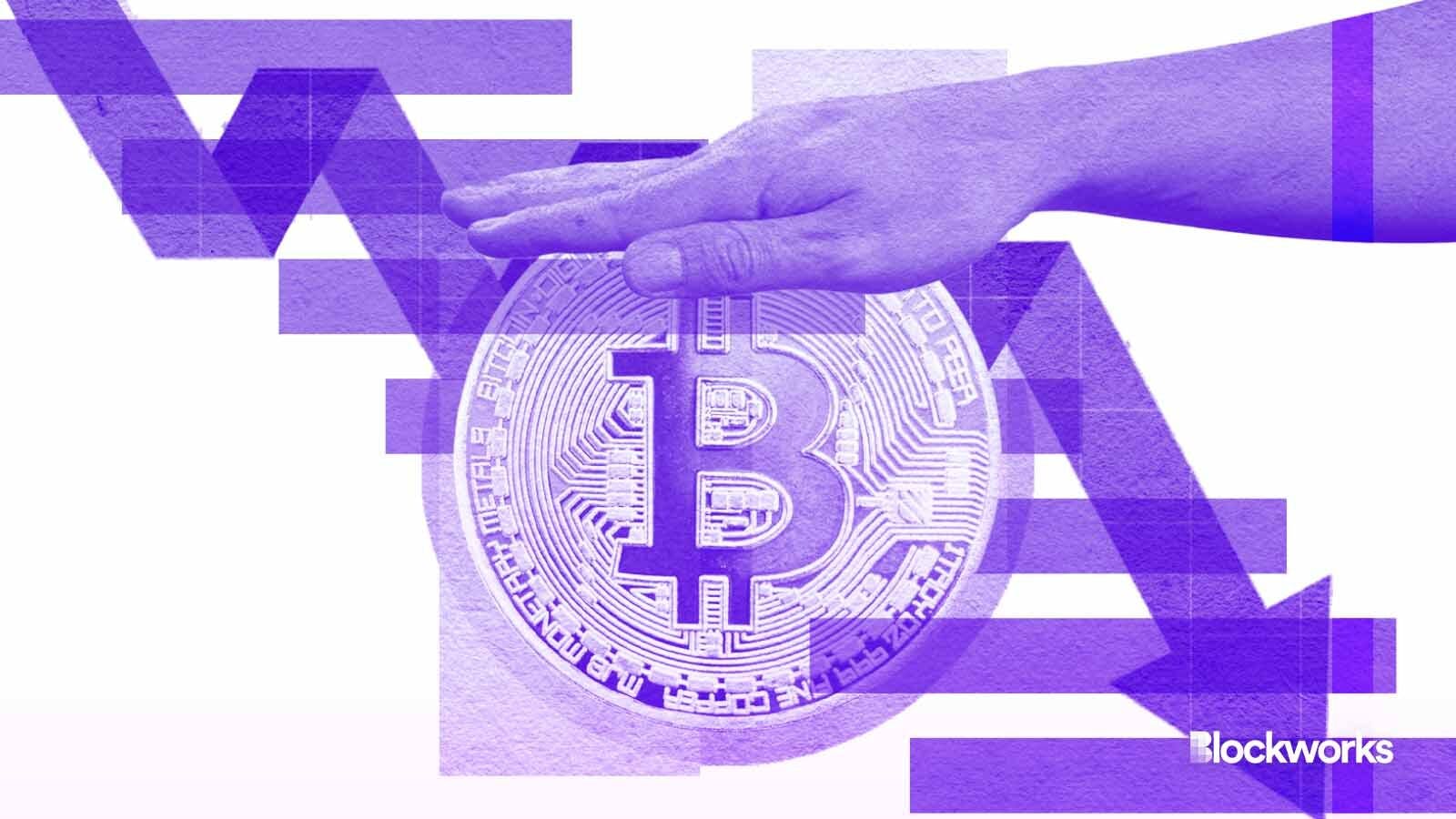Bitcoin and ether prices maintain decline as stocks hold steady
GBTC’s total outflows on Monday came in at around $640 million, likely contributing to bitcoin’s continued decline

Artwork by Crystal Le
Bitcoin and ether dipped further Tuesday, extending their decline from Monday as traders weighed whether outflows from bitcoin ETFs would continue.
Ether lost 7% Tuesday over 24-hours, putting it 14% lower over the week.
Bitcoin was trading around $38,900 Tuesday morning in New York. Bitcoin is now down close to 20% since bitcoin ETFs hit the market in the US earlier this month.
Analysts say outflows from bitcoin ETFs – driven by investors pulling out of the newly converted Grayscale Bitcoin Trust (GBTC) – are partially to blame for the underlying asset’s decline.
Read more: GBTC’s asset bleeding to blame for week of flat crypto product flows
FTX’s bankrupt estate reportedly sold 22 million shares of GBTC on Monday alone, according to a report from CoinDesk. GBTC’s total outflows on Monday came in at around $640 million, according to data from CoinShares. The nine new bitcoin ETF products are still net-positive for inflows, though, posting about $4.13 billion compared to $2.9 in outflows since launch.
“While excluding outflows from GBTC gives a somewhat positive picture, as the impact of those flows fades and the investor base in these funds expands, positive sentiment may gradually return to the market,” said Samer Hasn, market analyst at XS.com.
Bitcoin (BTC) is still up more than 70% year over year, Hasn said, and the true market impact of bitcoin ETFs will take longer to see.
Stocks, meanwhile, continued to trade sideways Tuesday after a fairly flat trading day Monday. While the S&P 500 hit a new high Friday, driven by tech stocks, most sectors have not surpassed their January 2022 levels.
Now, investors wait for the Federal Reserve’s two-day policy meeting to conclude next week, and until then, the US central bank will remain in its typical pre-meeting quiet period. Fed fund futures show markets are all but certain rates will remain unchanged and the first cut will come in March or May.
“Our view remains that the US economy does not need the aggressive rate policy implied by Futures prices,” said Nicolas Colas, co-founder of DataTrek Research. “Equity markets seem to agree, given Friday’s new all-time high for the S&P 500.”
Get the news in your inbox. Explore Blockworks newsletters:
- The Breakdown: Decoding crypto and the markets. Daily.
- 0xResearch: Alpha in your inbox. Think like an analyst.






